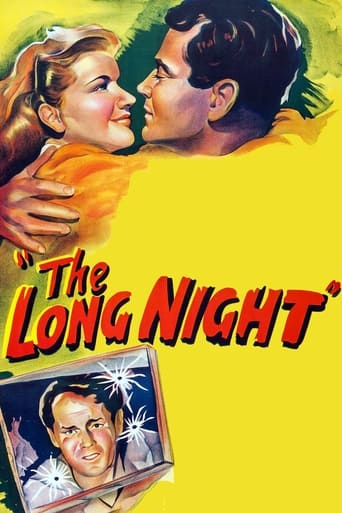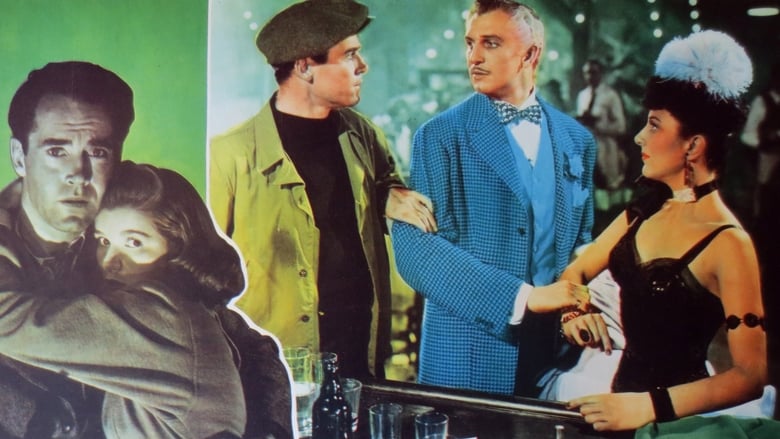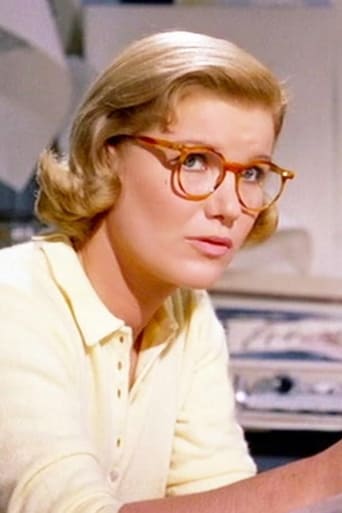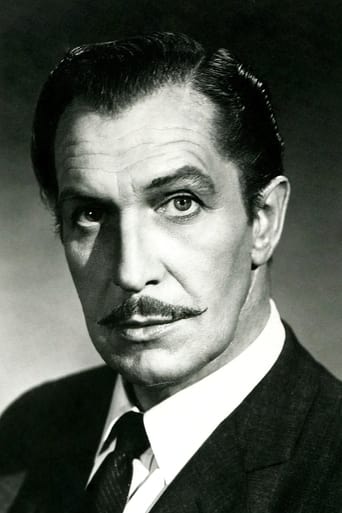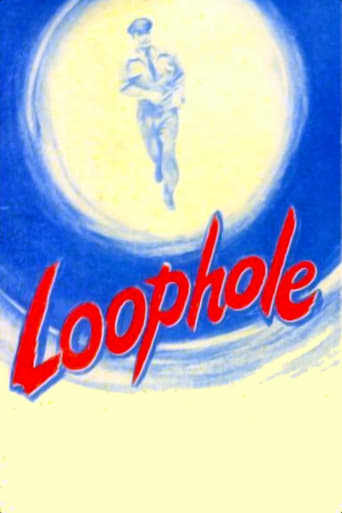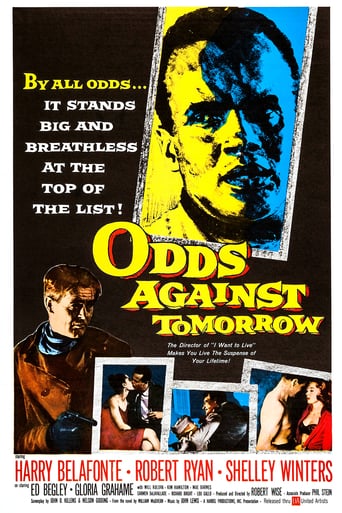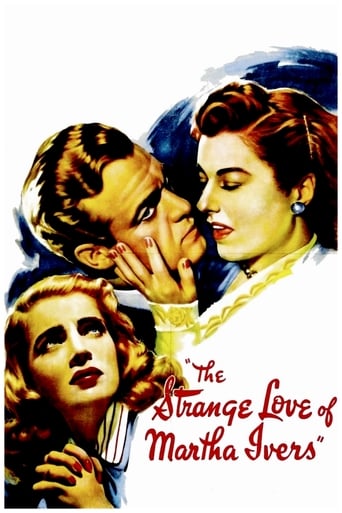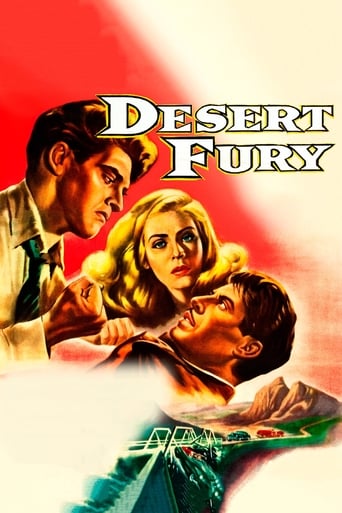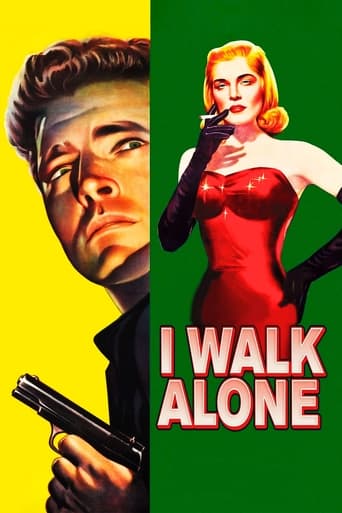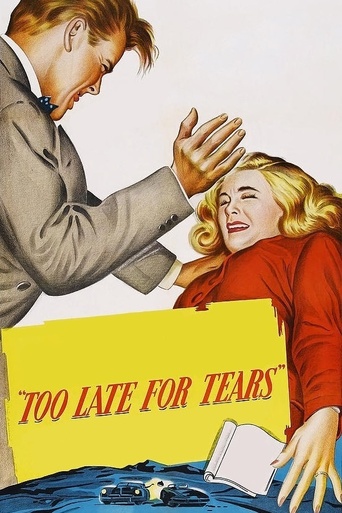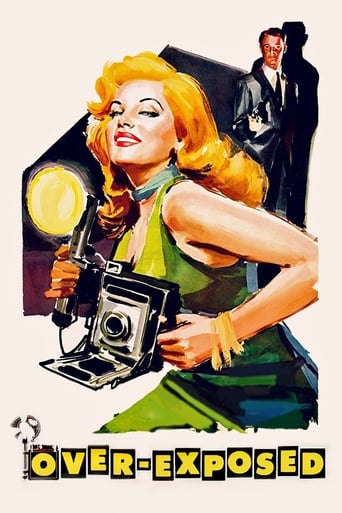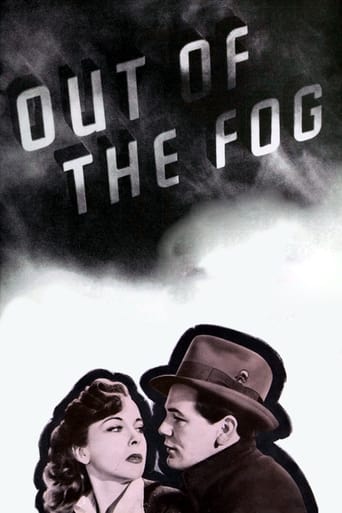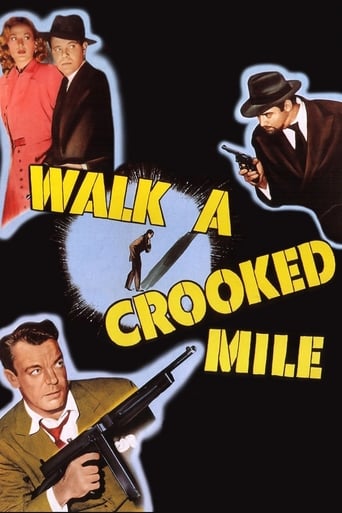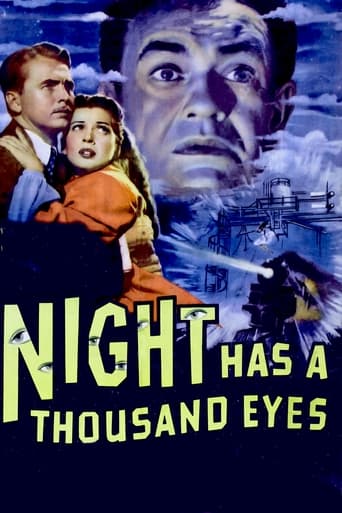The Long Night (1947)
City police surround a building, attempting to capture a suspected murderer. The suspect knows there is no escape but refuses to give in.
Watch Trailer
Free Trial Channels
Cast


Similar titles
Reviews
The Worst Film Ever
if their story seems completely bonkers, almost like a feverish work of fiction, you ain't heard nothing yet.
While it is a pity that the story wasn't told with more visual finesse, this is trivial compared to our real-world problems. It takes a good movie to put that into perspective.
The storyline feels a little thin and moth-eaten in parts but this sequel is plenty of fun.
Copyright 6 August 1947 by Select Productions, Inc. Released through RKO Radio Pictures. New York opening at the RKO Palace: 16 September 1947. U.S. release: 6 August 1947. Australian release: 26 February 1948. 8,902 feet. 99 minutes.SYNOPSIS: Joe Adams (Fonda) is a soldier just returned from wartime service, who returns to his small Pennsylvania town and has trouble adjusting to dull civilian life. He takes a job as a sandblaster and meets a pretty girl, Jo Ann (Barbara Bel Geddes) and soon falls in love with her. Both are orphans and sympathetic to each other's background. Complications arise when he learns that she had been seeing a suave magician, Maximilian (Vincent Price). Joe seeks out the magician's assistant, Charlene (Ann Dvorak), who warns him that Maximilian is a charming seducer. Maximilian visits Joe and claims to be Jo Ann's father and that he wishes Joe to stay away from her.NOTES: A re-make of the 1939 French film "Le Jour Se Leve" directed by Marcel Carné, with Jean Gabin, Jules Berry, Jacqueline Laurent and Arletty in the roles now played by Fonda, Price, Bel Geddes and Dvorak respectively. This marks the film debut of Miss Bel Geddes, daughter of famed stage designer/producer Norman Bel Geddes ("Dead End"), and star of numerous Broadway productions including Elia Kazan's enormously successful 1945 "Deep Are the Roots".Negative cost: around $2 million, all of which was lost when the film failed at the box-office.COMMENT: The public hated this movie. The critics likewise, all of us (including me) comparing it unfavorably to Le Jour Se Leve. A recent re-examination of this film shows that we were all more than a little hasty in dismissing it so glibly. In fact there's much to admire from Litvak's superb control of the teeming crowds of onlookers to Barbara Bel Geddes' luminous portrait of the too- romantic Jo Ann and Ann Dvorak's suitably cynical study of the disillusioned Charlene. Fonda is perhaps too up-market an actor to play a mill-worker adequately. Certainly he's too well-spoken and has far too sophisticated a presence for the rather naive hero of this story. You never get the feeling he is a real Joe, but just an actor, struggling to play the part. The same criticism can be applied to Vincent Price. A difficult role it's true, but his interpretation is just too mannered, too contrived, too artificial. Aside from these two key performances, however, everyone else is fine.Litvak, his photographer and set designer have really let themselves go with the Hakim Brothers' money. As a mood piece, "The Long Night" would be hard to equal. One major change that I like is Litvak's use of aggressive police and a huge chorus of onlookers who shout the hero their support. I also thought the heroine's struggle and eventual meeting was suspensefully and realistically constructed, leading to a satisfying, upbeat conclusion.OTHER VIEWS: "The night is long that never finds the day." This opening quote from Shakespeare's Macbeth failed to impress contemporary critics who likened this version most unfavorably to the original. Certainly Jules Berry's performance would be difficult to equal. Perhaps wisely, Vincent Price doesn't even try, acting on a superficial one-note throughout, but this does make it hard to accept the film as a whole, despite the radiant presence of Barbara Bel Geddes as the heroine, and Ann Dvorak giving one of her most impressive performances ever as the cynical Charlene. Henry Fonda is badly miscast. The role really called for a Gary Cooper or a James Stewart, someone who could portray the intensity of a simple common man with naive ideals. Fonda could do this later in his career, but here he is too mannered and artificial to be convincing. The director has more success in marshaling his vast crowds, using his famous signature crane shots to great effect. - JHR writing as George Addison.AVAILABLE on DVD through Kino. Quality rating: Ten out of ten.
Plot-- Working class stiff Joe is trapped in his upper story, run-down flat while cops pour hot lead into the room. Joe doesn't seem too bothered, and in a series of loose flashbacks, we learn about events leading up to his state of mind and the police siege of his room.Despite slam-bang opening, the film bogs down into a loosely connected talk-fest that fails to generate much suspense. I suspect the screenplay was extended to accommodate the four principals, especially Bel Geddes in her first role. Each gets prolonged spotlight scenes that do more to showcase than to build plot engagement. Interestingly, there's a clash of social classes underlying Joe (Fonda) and Maximilian (Price). Joe's shown to be a hard worker, popular with his peers who gather below in his support during the police siege. Max, on the other hand, amounts to an effete snob who puts on upper-class airs and ridicules Joe's unpolished ways. Fonda's excellent as Joe despite his turgidly written character; while Price's Max comes across as a clumsy contrivance not helped by Price's natural tendency to emote. Bel Geddes appears fresh and natural as JoAnn, while Dvorak makes the most out of a stereotype as the good-hearted dame. On the plus side, it appears the screenplay avoids easy conventions. Once we see him, Fonda's Joe is not particularly likable, while the cops appear trigger-happy pumping Joe's flat full of more holes than a big sieve. But most startling is the ending that almost defies a basic Hollywood expectation. I expect the censors stepped in and reversed a twist that otherwise would have been a complete shock.Problems with the disjointed screenplay may well be traceable to the studio combining two scripts by two writers, each of which has its own emphasis. That's conjecture, but the results on screen suggest a lack of thematic continuity. Too bad, because there's a first-rate noir lurking behind the flabby result, as the lighting and Joe's compromised character strongly suggest.
I don't like remakes--and that is why I waited so long to watch "The Long Night". Originally it was a dandy French film ("Le Jour Se Leve") and I saw no reason to redo the film, as the original was quite good. And, after seeing it, I stick by my original opinion--there just wasn't a need to make this remake. However, I can understand why they made it, as folks in the States back in the 1940s did not watch foreign films--and when they saw this American version, it did seem original. But now with DVDs, Turner Classic Movies and Netflix, you should just stick with "Le Jour Se Leve".The film is a talky picture about a brooding guy (Henry Fonda), his sweetie-pie (Barbara Bel Geddes) and a completely bizarre blabber-mouth (Vincent Price). Fonda and Bel Geddes are in love but Price is determined to break them up--and push Fonda to the breaking point. The story is told through flashbacks and is similar to the Jean Gabin film--without the film noir camera-work and lighting. Also, the American version comes off as much talkier--much. All in all, not a terrible film at all--but not the 9 that the other film deserved when I rated it a couple years ago.
I've never seen the original French film upon which this film was based, but I can tell you I kept waiting for a plot line payoff that never came. It has everything going for it - solid cast giving good believable performances, good direction, even a good speech that Fonda's character delivers from this broken out window as he is under siege by the police that gives us some insight into what it's like for an average guy who has returned home from years of killing and seeing killing in the war expected to pick up where he left off. But ultimately, I never see anything that Fonda's character, factory laborer Joe Adams, has been put through as far as shock or emotional torment or even disillusionment that would justifiably cause him to kill a man. Is Vincent Price's character Maximillian eloquently taunting and creepy? Yes, and in a way that Price excelled at over the years starting in noirs and proceeding on into his horror films. However, at no time does he do anything that would drive anybody to do more than shoo him away or stuff earplugs in their ears or possibly call the ASPCA (You'll have to watch the film to understand this last remark). I'm giving this film a five just for the fact that I believe the production code is the reason any hard edges that seem to be just under the surface never appear. I'm almost positive the script would have gone further if the censors would have allowed it to be so.The real point of interest to me was the action of the police, who behave a lot like the fascists that Joe Adams spent years fighting in WWII. Sure they have a murderer holed up in his rented room, but he's holding no hostages, they've emptied the building, and still they spray him twice with automatic gunfire unannounced - once from the outside into his window, then from the stairwell into the door. When he pushes a sturdy dresser against the door and they realize they can't force their way in THEN they try talking to Joe, starting with the line "We're not fooling"?? No kidding! After Fonda's speech to the crowd, once the crowd starts voicing their support for Joe and promising financial help with a lawyer the police form a line and practically trample the crowd forcing them out of the street. I don't know if the heavy handedness of the police was something that Litvak wanted the audience to notice, but it was something I noticed.I'd recommend this one just for the good performances and atmosphere and some imagery you don't see that much in films immediately after WWII, but don't expect something shocking or even interesting to happen just because of all of the talent assembled here.

